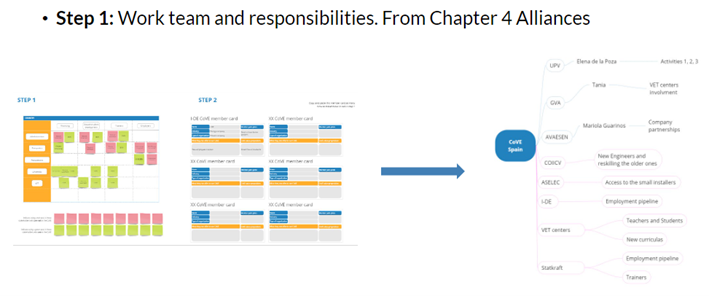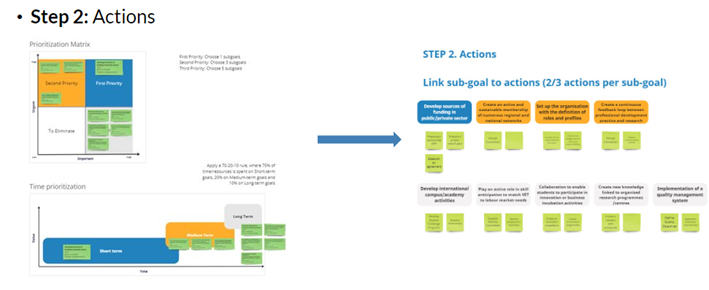By Mariola Guarinos Ripoll
In a recent workshop conducted by the SEED Consortium in Kozáni (Greece), participating regions showcased the progress achieved over the past three months in elaborating the regional development plans for the Centers of Vocational Excellence (CoVEs). This pivotal event, spanning two hours, provided a platform for the collaborative refinement of objectives, key performance indicators (KPIs), risk assessments, role delineations, action planning, and deadline setting.
The workshop commenced with a comprehensive overview of each region’s main objectives, emphasizing clarity on KPIs and associated impacts. This initial segment facilitated transparent communication among regions, ensuring alignment of goals and fostering a shared understanding of the project’s overarching vision. This collaborative environment facilitated mutual learning among the regions, enabling them to refine their individual regional plans through meaningful exchanges. As a direct outcome of this interaction, several regions expressed interest in adjusting aspects of their approach, thereby enhancing the effectiveness of their objectives.
In the subsequent hour, participants engaged in a structured exercise aimed at defining roles and responsibilities. Building upon prior work on partnership dynamics, this session fostered a deeper understanding of the collaborative framework within which the CoVEs operate. By delineating clear roles, regions could leverage their respective strengths and expertise, thereby optimizing resource allocation and enhancing efficiency.
Following role clarification, regions used the prioritizing objectives from previous workshops to concrete actions. This step not only reinforced the importance of strategic focus but also encouraged innovative thinking in problem-solving and goal attainment. By identifying two to three actions per objective, regions articulated actionable steps towards realizing their developmental aspirations.
Finally, the workshop culminated in the establishment of clear timelines for each action and objective. This forward-looking approach not only instilled a sense of accountability but also ensured that progress remained on track. By delineating deadlines, regions committed to a structured timeline, thereby enhancing CoVE momentum and facilitating effective consortium management.
Through collaborative workshops such as these, the SEED Consortium continues to exemplify its commitment to transnational cooperation and learning. By providing a platform for open dialogue, strategic planning, and collective action, the Consortium empowers regions to leverage their collective expertise towards achieving shared goals. As the project progresses, such workshops will serve as pivotal milestones, catalyzing progress and fostering a culture of collaboration and innovation.




